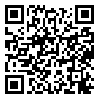Volume 13, Issue 52 (9-2019)
Research on Addiction 2019, 13(52): 259-274 |
Back to browse issues page
Download citation:
BibTeX | RIS | EndNote | Medlars | ProCite | Reference Manager | RefWorks
Send citation to:



BibTeX | RIS | EndNote | Medlars | ProCite | Reference Manager | RefWorks
Send citation to:
Jangi P, ramak N, Sangani A. Comparative study of self-abusive behaviors, emotional distress tolerance and irrational beliefs in among opiate and provocative drugs addicts. Research on Addiction 2019; 13 (52) :259-274
URL: http://etiadpajohi.ir/article-1-1743-en.html
URL: http://etiadpajohi.ir/article-1-1743-en.html
PhD in Exceptional Child Psychology, Islamic Azad University of Ahvaz, Ahvaz, Iran
Abstract: (5055 Views)
Aim: The aim of this study is to investigate the self-abusive behaviors, emotional distress tolerance and irrational beliefs in among opiate and provocative drugs addicts.
Method: In this comparative causative study, the statistical population included all the addicted people who are recovering including 51 opiate drugs addict and 51 provocative drugs addict at Gorgan in 2018 were selected by multi-stage cluster sampling. Participants were asked to respond to the questionnaires of Mohammadian Self-Horizons Behaviors (2009), Jones's Irrational Belief Test (IBT), and Emotional Distress Tolerance Questionnaire (DTS). Data were analyzed using Analysis (MANOVA).
Results: The results of this test indicate that there is a significant difference in the level of irrational beliefs and tolerance of emotional distress and general self-efficacy behaviors in the two groups in the recovering and addicted men (P <0.001).
Conclusion: According to the results of the study, it can be concluded that incompatible beliefs and uncontrolled emotions in the group of provocative drugs addict are more than opiate drugs addict, and irrational beliefs play an important role in the selection and continuation of maladaptive coping mechanisms and ultimately recurrence.
Method: In this comparative causative study, the statistical population included all the addicted people who are recovering including 51 opiate drugs addict and 51 provocative drugs addict at Gorgan in 2018 were selected by multi-stage cluster sampling. Participants were asked to respond to the questionnaires of Mohammadian Self-Horizons Behaviors (2009), Jones's Irrational Belief Test (IBT), and Emotional Distress Tolerance Questionnaire (DTS). Data were analyzed using Analysis (MANOVA).
Results: The results of this test indicate that there is a significant difference in the level of irrational beliefs and tolerance of emotional distress and general self-efficacy behaviors in the two groups in the recovering and addicted men (P <0.001).
Conclusion: According to the results of the study, it can be concluded that incompatible beliefs and uncontrolled emotions in the group of provocative drugs addict are more than opiate drugs addict, and irrational beliefs play an important role in the selection and continuation of maladaptive coping mechanisms and ultimately recurrence.
Type of Study: Research |
Subject:
Special
Received: 2018/05/24 | Accepted: 2019/09/27 | Published: 2019/11/2
Received: 2018/05/24 | Accepted: 2019/09/27 | Published: 2019/11/2
| Rights and permissions | |
 |
This work is licensed under a Creative Commons Attribution-NonCommercial 4.0 International License. |





